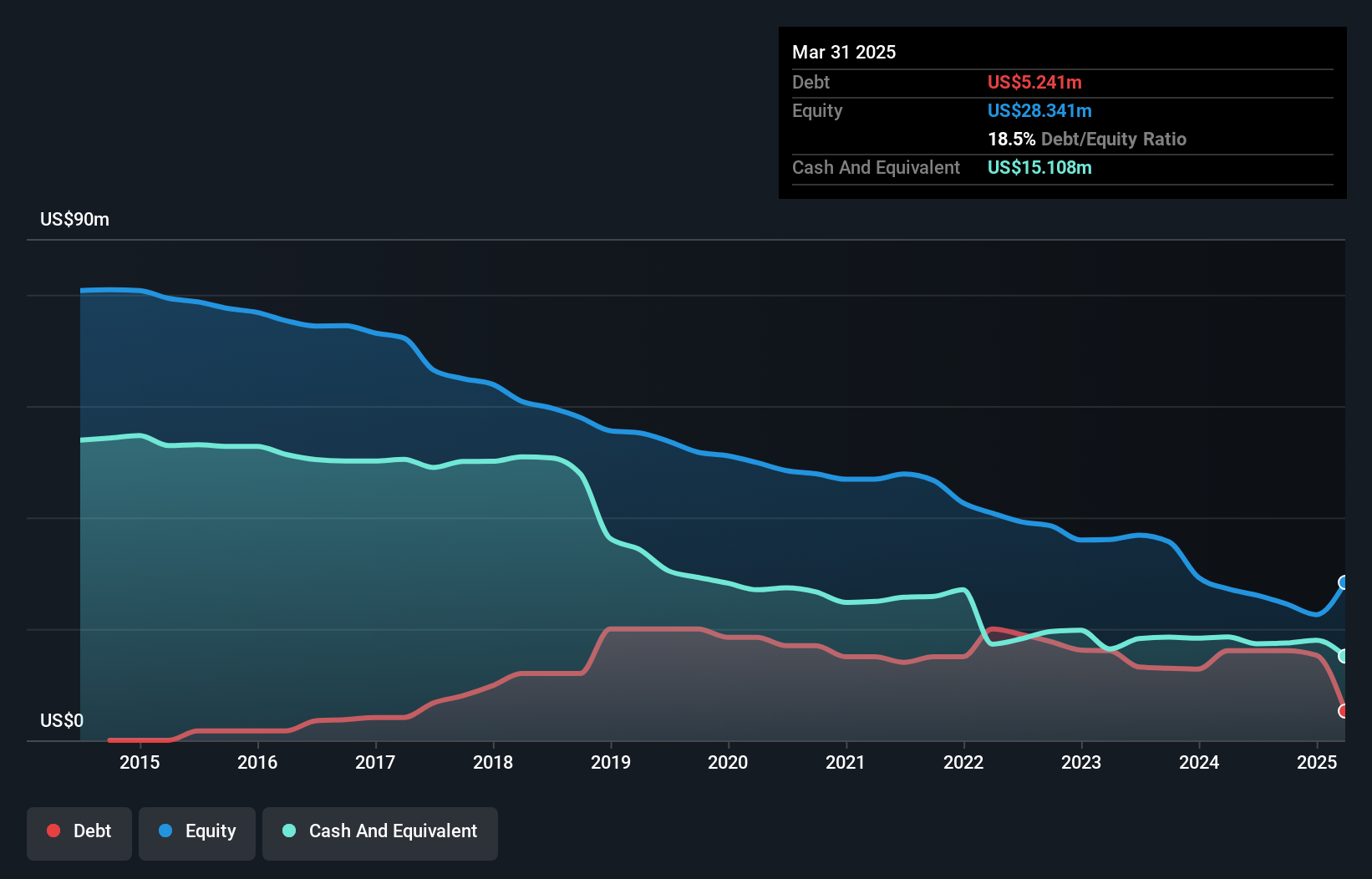Does Cumberland Pharmaceuticals (NASDAQ:CPIX) Have A Healthy Balance Sheet?
Some say volatility, rather than debt, is the best way to think about risk as an investor, but Warren Buffett famously said that 'Volatility is far from synonymous with risk.' So it might be obvious that you need to consider debt, when you think about how risky any given stock is, because too much debt can sink a company. We can see that Cumberland Pharmaceuticals Inc. (NASDAQ:CPIX) does use debt in its business. But is this debt a concern to shareholders?
When Is Debt Dangerous?
Debt assists a business until the business has trouble paying it off, either with new capital or with free cash flow. In the worst case scenario, a company can go bankrupt if it cannot pay its creditors. However, a more usual (but still expensive) situation is where a company must dilute shareholders at a cheap share price simply to get debt under control. Of course, debt can be an important tool in businesses, particularly capital heavy businesses. When we think about a company's use of debt, we first look at cash and debt together.
What Is Cumberland Pharmaceuticals's Net Debt?
As you can see below, Cumberland Pharmaceuticals had US$5.24m of debt at March 2025, down from US$16.1m a year prior. However, its balance sheet shows it holds US$15.1m in cash, so it actually has US$9.87m net cash.

How Healthy Is Cumberland Pharmaceuticals' Balance Sheet?
According to the last reported balance sheet, Cumberland Pharmaceuticals had liabilities of US$25.5m due within 12 months, and liabilities of US$16.1m due beyond 12 months. On the other hand, it had cash of US$15.1m and US$10.5m worth of receivables due within a year. So its liabilities total US$16.0m more than the combination of its cash and short-term receivables.
Since publicly traded Cumberland Pharmaceuticals shares are worth a total of US$80.2m, it seems unlikely that this level of liabilities would be a major threat. Having said that, it's clear that we should continue to monitor its balance sheet, lest it change for the worse. While it does have liabilities worth noting, Cumberland Pharmaceuticals also has more cash than debt, so we're pretty confident it can manage its debt safely. There's no doubt that we learn most about debt from the balance sheet. But you can't view debt in total isolation; since Cumberland Pharmaceuticals will need earnings to service that debt. So when considering debt, it's definitely worth looking at the earnings trend. Click here for an interactive snapshot.
View our latest analysis for Cumberland Pharmaceuticals
In the last year Cumberland Pharmaceuticals wasn't profitable at an EBIT level, but managed to grow its revenue by 5.8%, to US$41m. We usually like to see faster growth from unprofitable companies, but each to their own.
So How Risky Is Cumberland Pharmaceuticals?
While Cumberland Pharmaceuticals lost money on an earnings before interest and tax (EBIT) level, it actually generated positive free cash flow US$5.2m. So taking that on face value, and considering the net cash situation, we don't think that the stock is too risky in the near term. Until we see some positive EBIT, we're a bit cautious of the stock, not least because of the rather modest revenue growth. When analysing debt levels, the balance sheet is the obvious place to start. But ultimately, every company can contain risks that exist outside of the balance sheet. For example, we've discovered 2 warning signs for Cumberland Pharmaceuticals that you should be aware of before investing here.
Of course, if you're the type of investor who prefers buying stocks without the burden of debt, then don't hesitate to discover our exclusive list of net cash growth stocks, today.
Have feedback on this article? Concerned about the content? Get in touch with us directly. Alternatively, email editorial-team (at) simplywallst.com.
This article by Simply Wall St is general in nature. We provide commentary based on historical data and analyst forecasts only using an unbiased methodology and our articles are not intended to be financial advice. It does not constitute a recommendation to buy or sell any stock, and does not take account of your objectives, or your financial situation. We aim to bring you long-term focused analysis driven by fundamental data. Note that our analysis may not factor in the latest price-sensitive company announcements or qualitative material. Simply Wall St has no position in any stocks mentioned.
① During the campaign period, US stocks, US stocks short selling, US stock options, Hong Kong stocks, and A-shares trading will maintain at $0 commission, and no subscription/redemption fees for mutual fund transactions. $0 fee offer has a time limit, until further notice. For more information, please visit: https://www.webull.hk/pricing
Webull Securities Limited is licensed with the Securities and Futures Commission of Hong Kong (CE No. BNG700) for carrying out Type 1 License for Dealing in Securities, Type 2 License for Dealing in Futures Contracts and Type 4 License for Advising on Securities.

English